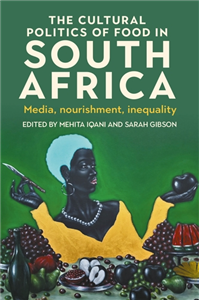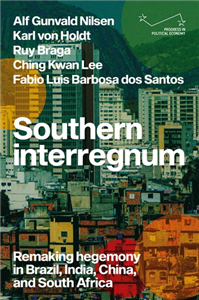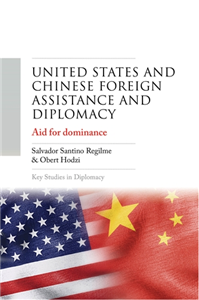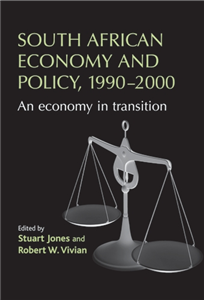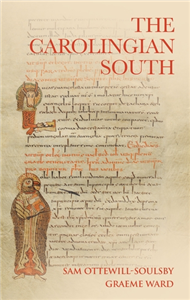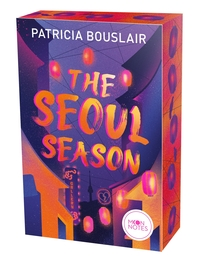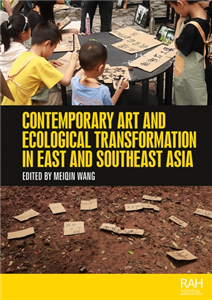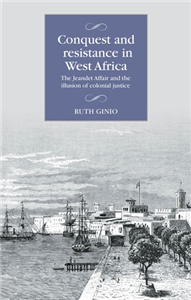Your Search Results
-
Afram Publications
Afram Publication is specialized in publishing materials for pre-school and basic education with special focus on development of local authorship especially in children’s books.
View Rights Portal
-
Promoted ContentHumanities & Social SciencesMarch 2026
The cultural politics of food in South Africa
Media, nourishment, inequality
by Mehita Iqani, Sarah Gibson
Food is both a material system of nourishment, necessary for human survival, and a communicative system that signifies multiple meanings across human cultures. This book explores the cultural politics of food in the South African context, bringing together a range of disciplinary perspectives on the links between media, nourishment, and inequality. The chapters all highlight the multiplicity of meanings that food has in South African society. These include historical perspectives on the impact of colonialism, migration and apartheid had on food and foodways in South Africa; sociological interventions on food and society; aesthetic practices in relation to food; and mediated food cultures in South Africa. Taken together, the book critically explores the multiple ways in which food is never just food, and always linked to complex and shifting modalities of meaning and knowledge in the South African context.
-
Promoted Content
-
 Trusted Partner
Business, Economics & LawJune 2025
Trusted Partner
Business, Economics & LawJune 2025Southern interregnum
Remaking hegemony in Brazil, India, China, and South Africa
by Alf Gunvald Nilsen, Karl von Holdt, Ruy Braga, Ching Kwan Lee, Fabio Luis Barbosa dos Santos
How do governing elites in the global South attempt to remake hegemony in a conjuncture of durable crisis? This is the question at the core of Southern interregnum, a comparative conjunctural analysis of hegemonic projects in Brazil, India, China, and South Africa. Working with a Gramscian notion of crisis, centred on the interregnum as an enduring period of instability and uncertainty, in which hegemonic authority erodes and competing projects for crisis resolution emerge, the book proposes a novel critical reading of the convulsions that are currently reshaping the political economy of the global South and the world-system. Mapping the variegated trajectories of elite projects to reconcile accumulation and legitimation - and probing the limits of these projects - the book breaks new ground in the study of the contemporary global South.
-
 Trusted Partner
Trusted Partner
-
 Trusted Partner
Literature & Literary StudiesJune 2025
Trusted Partner
Literature & Literary StudiesJune 2025Resistance and its discontents in South Asian women's fiction
by Maryam Mirza
-
 Trusted Partner
Humanities & Social SciencesJanuary 2026
Trusted Partner
Humanities & Social SciencesJanuary 2026United States and Chinese foreign assistance and diplomacy
Aid for dominance
by Salvador Santino Regilme, Obert Hodzi
Aid for Dominance addresses the analytic weaknesses of mainstream analysis of foreign aid, which often focuses on its material dimensions. The book underscores the constitutive relationship between foreign aid as a material resource and the diplomatic discourses and practices that constitute complex bilateral relations between donor and recipient states. Written by two leading scholars of contemporary United States and Chinese foreign policies in the Global South, Aid for Dominance offers a pioneering, theoretically conscious, and empirically rich account of the two great powers' grand strategies in the global development sector. By deploying a multidisciplinary and comparative analysis, this book draws from a wide range of evidentiary materials from primary sources, including data from fieldwork interviews, government documents, local and international newspapers, speeches by high-ranking government officials and diplomats, and secondary data from scholarly publications and policy papers.
-
 Trusted Partner
Humanities & Social SciencesMarch 2024
Trusted Partner
Humanities & Social SciencesMarch 2024Intimacy and injury
In the wake of #MeToo in India and South Africa
by Nicky Falkof, Srila Roy, Shilpa Phadke
Both India and South Africa have shared the infamy of being labelled the world's 'rape capitals', with high levels of everyday gender-based and sexual violence. At the same time, both boast long histories of resisting such violence and its location in wider cultures of patriarchy, settler colonialism and class and caste privilege. Through the lens of the #MeToo moment, the book tracks histories of feminist organising in both countries, while also revealing how newer strategies extended or limited these struggles. Intimacy and injury is a timely mapping of a shifting political field around gender-based violence in the global south. In proposing comparative, interdisciplinary, ethnographically rich and analytically astute reflections on #MeToo, it provides new and potentially transformative directions to scholarly debates this book builds transnational feminist knowledge and solidarity in and across the global south.
-
 Trusted Partner
Humanities & Social SciencesJune 2023
Trusted Partner
Humanities & Social SciencesJune 2023Worrier state
Risk, anxiety and moral panic in South Africa
by Nicky Falkof
Risk, anxiety and moral panic are endemic to contemporary societies and media forms. How do these phenomena manifest in a place like South Africa, which features heightened insecurity, deep inequality and accelerated social change? What happens when cultures of fear intersect with pervasive systems of gender, race and class? Worrier state investigates four case studies in which fear and anxiety appear in radically different ways: the far right myth of 'white genocide'; so-called 'Satanist' murders of young women; an urban legend about township crime; and social theories about safety and goodness in the suburbs. Falkof foregrounds the significance of emotion as a socio-political force, emphasising South Africa's imbrication within globalised conditions of anxiety and thus its fundamental and often-ignored hypermodernity. The book offers a bold and creative perspective on the social roles of fear and emotion in South Africa and thus on everyday life in this complex place.
-
 Trusted Partner
Humanities & Social SciencesMarch 2017
Trusted Partner
Humanities & Social SciencesMarch 2017The South African War reappraised
by Andrew Thompson, John M. MacKenzie
The South African War was a catalyst in the creation of modern South Africa and was a major international event which had profound implications for British rule in other parts of their colonial empire. This was South Africa's own 'Great War' - the largest conflict waged by the British in the century between the Napoleonic Wars and the First World War. It shaped political discourse among South Africa's various communities and moulded the outlook of a generation of imperial administrators, soldiers and anti-colonial activists. The war launched South Africa as a moral issue of global significance, involving leading humanitarians, foreign 'pro-Boer' volunteers as well as pro-imperial contingents from various dominions and colonies of settlement, and would later find echoes in the campaign against apartheid. This volume includes a historiographical review of a century of writing on the war. It examines South Africa's place in the imperial structure and reappraises its impact on imperial defence and the political identities of Africans, Asians, Boer commandos and Cape Afrikaners. An analysis of the role of the media and the effects of the war on nationalists in India, Ireland and the Dominions is also included. The South African War reappraised will be of particular interest to students of imperialism, modern South Africa, nationalism and the media.
-
 Trusted Partner
Business, Economics & LawJuly 2010
Trusted Partner
Business, Economics & LawJuly 2010South African economy and policy, 1990-2000
An economy in transition
by Stuart Jones, Robert W. Vivian
The 1990s were the decade of transition from white rule to black rule in South Africa. In the political sphere the transition was dramatic. In the economic sphere less so, yet the effects were and are likely to be far more far reaching. It is the economic impacts which are likely to determine the future of the country. With the exception of the diamond-rich Botswana, all the countries of Africa which underwent the transition from white to black rule experienced economic decline. Is this to be the fate of South Africa? How was and is South Africa's historical role as the world's leading gold producer affected by the transition? Why did some economic policies succeed and others fail? This book, by leading authorities in the field, attempts to answer these and other related questions. ;
-
 Trusted Partner
Humanities & Social SciencesMay 2026
Trusted Partner
Humanities & Social SciencesMay 2026The Carolingian South
by Sam Ottewill-Soulsby, Graeme Ward
The Carolingian South turns the Frankish world upside down by taking as its subject the lands of the Carolingian empire south of the Loire and the Alps. It assembles an international group of scholars from different disciplines to examine how the Carolingians defined and were defined by this region. This book asks how Carolingian power was created and negotiated in the south. It views the Frankish empire from the perspective of the Christian and Muslim polities of the Mediterranean, while also following the movement of people and ideas through the endlessly fascinating world that they made.
-
 Trusted Partner
Teaching, Language & ReferenceDecember 2020
Trusted Partner
Teaching, Language & ReferenceDecember 2020Living politics after war
by Johanna Söderström, Emmanuel Pierre Guittet
-
 Trusted Partner
Humanities & Social SciencesMarch 2017
Trusted Partner
Humanities & Social SciencesMarch 2017Borders and conflict in South Asia
The Radcliffe Boundary Commission and the partition of Punjab
by Lucy Chester
Borders and conflict in South Asia is the first full-length study of the 1947 drawing of the Indo-Pakistani boundary in Punjab. Using the Radcliffe commission as a window onto the decolonization and independence of India and Pakistan, and examining the competing interests, both internal and international, that influenced the actions of the various major players, it highlights British efforts to maintain a grip on India even as the decolonization process spun out of control. Drawing on extensive archival research in India, Pakistan, and Britain, combined with innovative use of cartographic sources, the book paints a vivid picture of both the partition process and the Radcliffe line's impact on Punjab. This book will be vital reading for scholars and students of colonialism, decolonization, partition, and borderlands studies, while providing anyone interested in South Asia's independence with a highly readable account of one of its most controversial episodes.
-
 Trusted Partner
October 2025
Trusted Partner
October 2025The Seoul Season
by Patricia Bouslair, Moon Notes
Mit edlem Farbschnitt in der Erstauflage – Lieferung nach Verfügbarkeit! Seoul, my soul Für Location-Scout Maya läuft das Leben wie ein perfektes Drehbuch: Im aufregenden Seoul fängt sie mit ihrer Kamera Schauplätze für eine vielversprechende Serie des Streaming-Giganten Cinemate ein. Dabei entdeckt sie die Galerie des aufstrebenden Künstlers Jae-ho, mit dem sie anfänglich noch Seoul erkundet und später auch die Seele des jeweils anderen. Doch als eine impulsive Lüge alles ins Wanken bringt, muss sich Maya zwischen Karriere und der Liebe entscheiden. Denn die Leinwand, auf die sie all ihre Träume projiziert hat, droht für immer zu zerreißen. The Seoul Season: Eine Slow-Burn-Romance in einer der aufregendsten Städte der Welt Liebe unter Kirschblüten: Atmosphärische Romance über die Liebe zwischen einem weiblichen Location-Scout und einem Künstler im aufregenden Seoul. Sich selbst finden: Auf der Suche nach Inspiration trifft der aufstrebende Künstler Jae-ho auf die selbstbewusste Maya, die ihre Vergangenheit überwinden möchte. Umgebaute Industriehallen und verträumte Hinterhöfe: Während Maya und Jae-ho gemeinsam die schönsten Ecken Seouls erkunden, verlieben sie sich ineinander. Voller Gefühle: Ein berührendes New Adult-Buch mit den beliebten Tropes „Strangers to Lovers“, „Grumpy x Sunshine“ und „Emotional Scars“. Toll ausgestattet: Softcover mit trendig gestalteten Klappen und einem wunderschönen Lesezeichen zum Abtrennen. Über Selbstfindung und Liebe: Das sinnlich geschriebene Romance-Buch lädt New-Adult-Leser*innen zum Träumen und Nachdenken ein.
-
 Trusted Partner
The ArtsMarch 2026
Trusted Partner
The ArtsMarch 2026Contemporary art and ecological transformation in East and Southeast Asia
by Meiqin Wang
This anthology, presenting new research from fourteen scholars, delves into the interplay between contemporary art and ecological concerns in East and Southeast Asia. Focused on the concept of artistic remediation, the book unravels the diverse capacities of art to combat systemic anthropogenic destruction to the environment and ecology. At its core, the book articulates the ongoing ecological transformation in art and art history that embraces a paradigm shift in human-nature relationships, emphasizing interconnectedness of all life forms of the Earth. Bridging art studies, activism, and environmental studies, the book examines how artistic practices in the region have engaged with ecocritical reflection, biodiversity advocacy, sustainable practices, and environmental justice, among others. Providing a platform for critical and timely analysis of artistic interventions in the face of existential crises, the book acknowledges diverse voices of scholars who have situated their scholarship in the cultural and artistic specificities of various societies, locales, and communities in the region.
-
 Trusted Partner
Humanities & Social SciencesSeptember 2024
Trusted Partner
Humanities & Social SciencesSeptember 2024Settlers at the end of empire
Race and the politics of migration in South Africa, Rhodesia and the United Kingdom
by Jean Smith
Settlers at the end of empire traces the development of racialised migration regimes in South Africa, Rhodesia (present-day Zimbabwe) and the United Kingdom from the Second World War to the end of apartheid in 1994. While South Africa and Rhodesia, like other settler colonies, had a long history of restricting the entry of migrants of colour, in the 1960s under existential threat and after abandoning formal ties with the Commonwealth they began to actively recruit white migrants, the majority of whom were British. At the same time, with the 1962 Commonwealth Immigrants Act, the British government began to implement restrictions aimed at slowing the migration of British subjects of colour. In all three nations, these policies were aimed at the preservation of nations imagined as white, revealing the persistence of the racial ideologies of empire across the era of decolonisation.
-
 Trusted Partner
Humanities & Social SciencesJune 2024
Trusted Partner
Humanities & Social SciencesJune 2024Peace and the politics of memory
by Annika Björkdahl, Susanne Buckley-Zistel, Stefanie Kappler, Johanna Mannergren Selimovic, Timothy Williams
This important book provides new understandings of how the politics of memory impacts peace in societies transitioning from a violent past. It does so by developing a theoretical approach focusing on the intersection of sites, agency, narratives, and events in memory-making. Drawing on rich empirical studies of mnemonic formations in Cyprus, Bosnia and Herzegovina, Rwanda, South Africa and Cambodia, the book speaks to a broad audience. The in-depth, cross-case analysis shows that inclusivity, pluralism, and dignity in memory politics are key to the construction of a just peace. The book contributes crucial and timely knowledge about societies that grapple with the painful legacies of the past and advances the study of memory and peace.
-
 Trusted Partner
Humanities & Social SciencesJuly 2025
Trusted Partner
Humanities & Social SciencesJuly 2025Conquest and resistance in West Africa
The Jeandet Affair and the illusion of colonial justice
by Ruth Ginio
This book is an enthralling account of a legal scandal, which erupted in colonial Senegal in 1890 and reached the French metropolitan press and the parliament. The murder of a colonial administrator, Abel Jeandet, by one of his soldiers led to the brutal and illegal executions without trial of the killer and two local dignitaries. The volume follows the fascinating story of Ndiereby Ba, the widow of one of the dignitaries, who with the help of powerful métis men in the capital Saint Louis sued the French administrators who had supervised the executions for the murder of her husband. Through this captivating tale the book articulates the French expansion into West Africa, the resistance to colonial rule both violent and non-violent, and the lack of interest on the part of French politicians in the brutal conquest of a territory they know nothing about.
-
 Trusted Partner
Humanities & Social SciencesApril 2021
Trusted Partner
Humanities & Social SciencesApril 2021The future of U.S.–India security cooperation
by Šumit Ganguly, M. Chris Mason
-
 Trusted Partner
Trusted Partner




